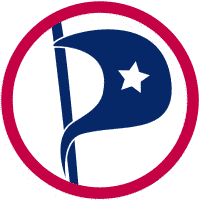U.S. District Judge Richard Matsch says sanitizing movies to delete content that may offend some people is an “illegitimate business.” According to a CBC article, Matsch ordered CleanFlicks and three other similar companies, to immediately stop producing, creating, and renting out edited films. I had heard before that they got around the issue by legally framing it in such a way that individuals were really buying movies and then requesting CleanFlicks remove the content on their behalf. Apparently this method of circumventing current copyright laws doesn’t hold water anymore.
The Electronic Frontier Foundation (EFF) should really step in here. It would be a great way to get politicians and religious groups on their side for once. Copyright holders have been granted far too much power recently. One of the goals of the EFF is to rollback the legislation that has made copyright in the United States a losing proposition for both consumers and the culture in general. These directors, including Steven Spielberg, Robert Redford, and Martin Scorsese, are arguing the same thing. According to a DGA press release about the ruling, Michael Apted, the president of the Directors Guild of America, had the following to say:
As creators of films, we oppose giving anyone the ability to alter in any way they choose, for any purpose, and for profit, the content of a film that we have made, often after many years of work. Directors put their skill, craft and often years of hard work into the creation of a film. These films carry our name and reflect on our reputations. No matter how many disclaimers are put on the film, it still carries the director’s name. So we have great passion about protecting our work, which is our signature and brand identification, against unauthorized editing.
Is this fair use? According to Judge Matsch it is not. I can’t see any reason why this is not covered by fair use. The discs are bought by the company, so the directors and everybody else involved in the film industry get their money and people who are willing to pay for this service get to watch movies they would never see otherwise. No one is hurt. Everybody wins. But that’s not good enough for the directors. They want everyone to watch the movie their way. Next thing you know they will make it so you can’t watch the movie unless you have 5.1 stereo surround sound, since that’s the way they intended the film to be viewed. What about locking out black and white TVs, or TVs that aren’t big enough? Does this sound absurd to you?
Think back to the days when all rented and purchased movies were on VHS tapes. Imagine there had been advertisements for other movies placed before the actual movie you wanted to watch, which was often the case on rented tapes. Now imagine that the fast-forward button didn’t work while playing that portion of the tape. Sounds pretty absurd doesn’t it? Well, DVDs have been doing this for years.
The directors hail this as a boon for them and their creative talent. They claim that this editing is unauthorized and that the films will now be viewed the way the director intended. Well, what about those movies that are released later labeled as the director’s cut? Does this mean *gasp* that the original version of the film was not the director’s original vision? You mean sometimes the movie we watch has been edited in ways the director did not intend? This is often done after focus groups watch the movies and respond unfavorably to certain aspects of the film. So this means that the movie studios can edit the films in ways that don’t represent the director’s vision. So producers and executives can alter the films for commercial gain, but individuals can’t pay a third party to edit a movie to their specifications?
I think people should have the right to fair use. I think this use falls into that category. This use is especially “fair” because the movie industry gets more sales from this activity than they otherwise would. I know a number of people who own copies of “scrubbed” movies that they would never own uncut version of.
Where does all this leave CleanFlicks then? I don’t know. This ruling was only made on July 7th 2006 and no mention of it has yet been made on the CleanFlicks website. They are still taking new signups, so maybe this somehow doesn’t affect all of their business model. I just hope that they make it through this.


